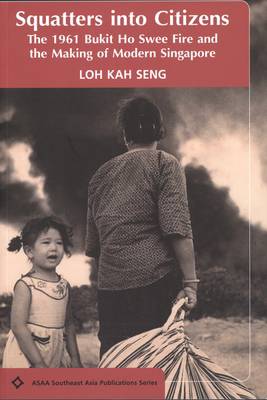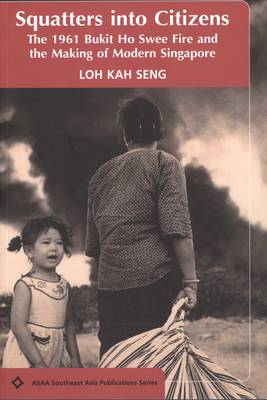
- Retrait gratuit dans votre magasin Club
- 7.000.000 titres dans notre catalogue
- Payer en toute sécurité
- Toujours un magasin près de chez vous
- Retrait gratuit dans votre magasin Club
- 7.000.0000 titres dans notre catalogue
- Payer en toute sécurité
- Toujours un magasin près de chez vous
Squatters Into Citizens
The 1961 Bukhit Ho Swee Fire and the Making of Modern Singapore
Loh Kah SengDescription
The crowded, bustling, "squatter" kampongs so familiar across Southeast Asia have long since disappeared from Singapore, leaving few visible traces of their historical influence on the life in the city-state. In one such settlement, located in an area known as Bukit Ho Swee, a great fire in 1961 destroyed the kampong and left 16,000 people homeless, creating a national emergency that led to the first big public housing project of the new Housing and Devel- opment Board (HDB). HDB flats now house more than four-fifths of the Singapore population, making the aftermath of the Bukit Ho Swee fire a seminal event in modern Singapore.
Loh Kah Seng grew up in one-room rental flats in the HDB estate built after the fire. Drawing on oral history interviews, offi- cial records, and media reports, he describes daily life in squatter communities and how people coped with the hazard posed by fires. His examination of the catastrophic events of 25 May 1961 and the steps taken by the new government of the People's Action Party in response to the disaster show the immediate consequenc- es of the fire and how relocation to public housing changed the people's lives. Through a narrative that is both vivid and subtle, Squatters into Citizens explores the nature of memory and probes beneath the hard surfaces of modern Singapore to understand the everyday life of the people who live in the city.Spécifications
Parties prenantes
- Auteur(s) :
- Editeur:
Contenu
- Nombre de pages :
- 344
- Langue:
- Anglais
- Collection :
Caractéristiques
- EAN:
- 9780824839468
- Date de parution :
- 31-10-13
- Format:
- Livre broché
- Format numérique:
- Trade paperback (VS)
- Dimensions :
- 150 mm x 226 mm
- Poids :
- 453 g

Les avis
Nous publions uniquement les avis qui respectent les conditions requises. Consultez nos conditions pour les avis.






